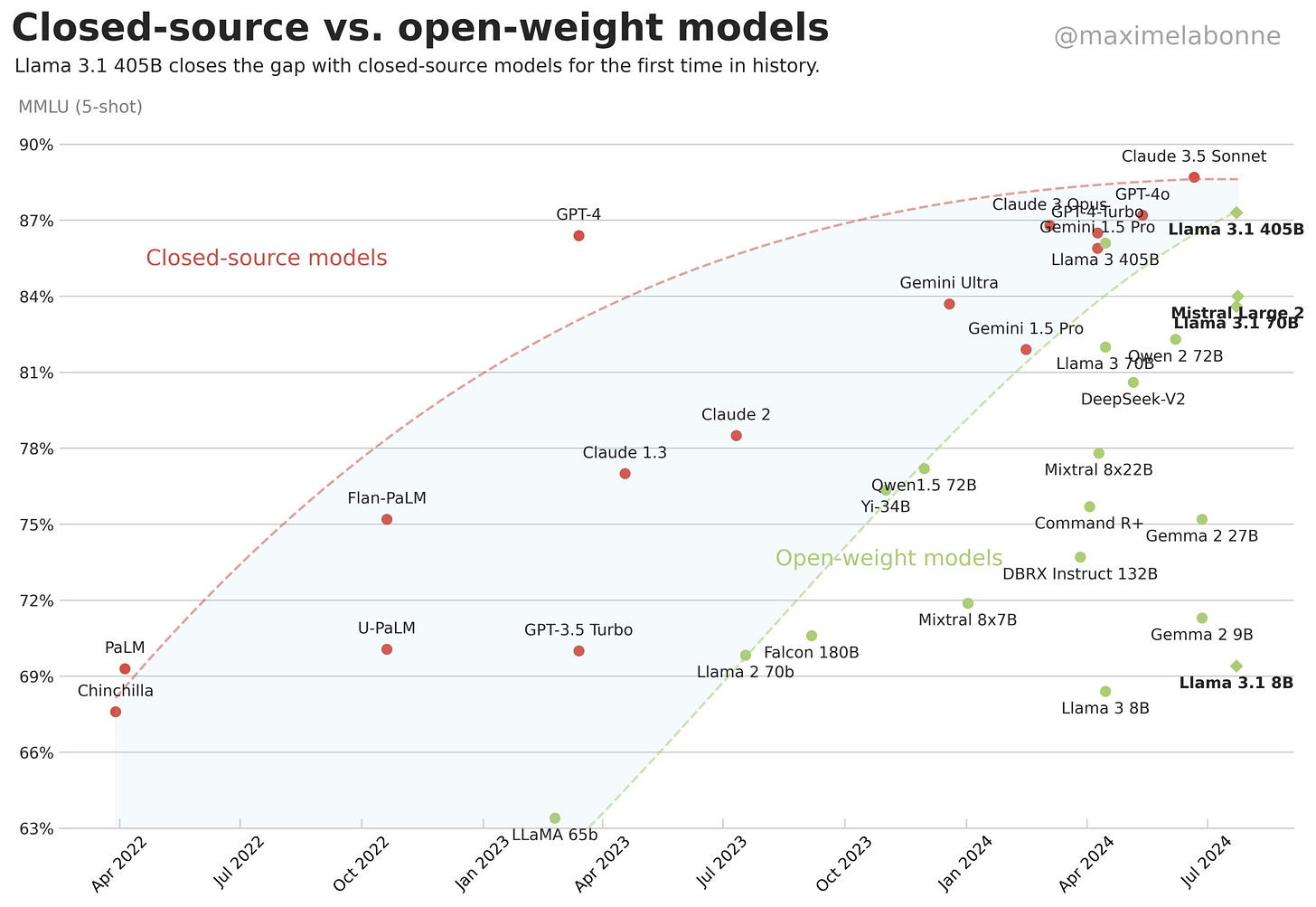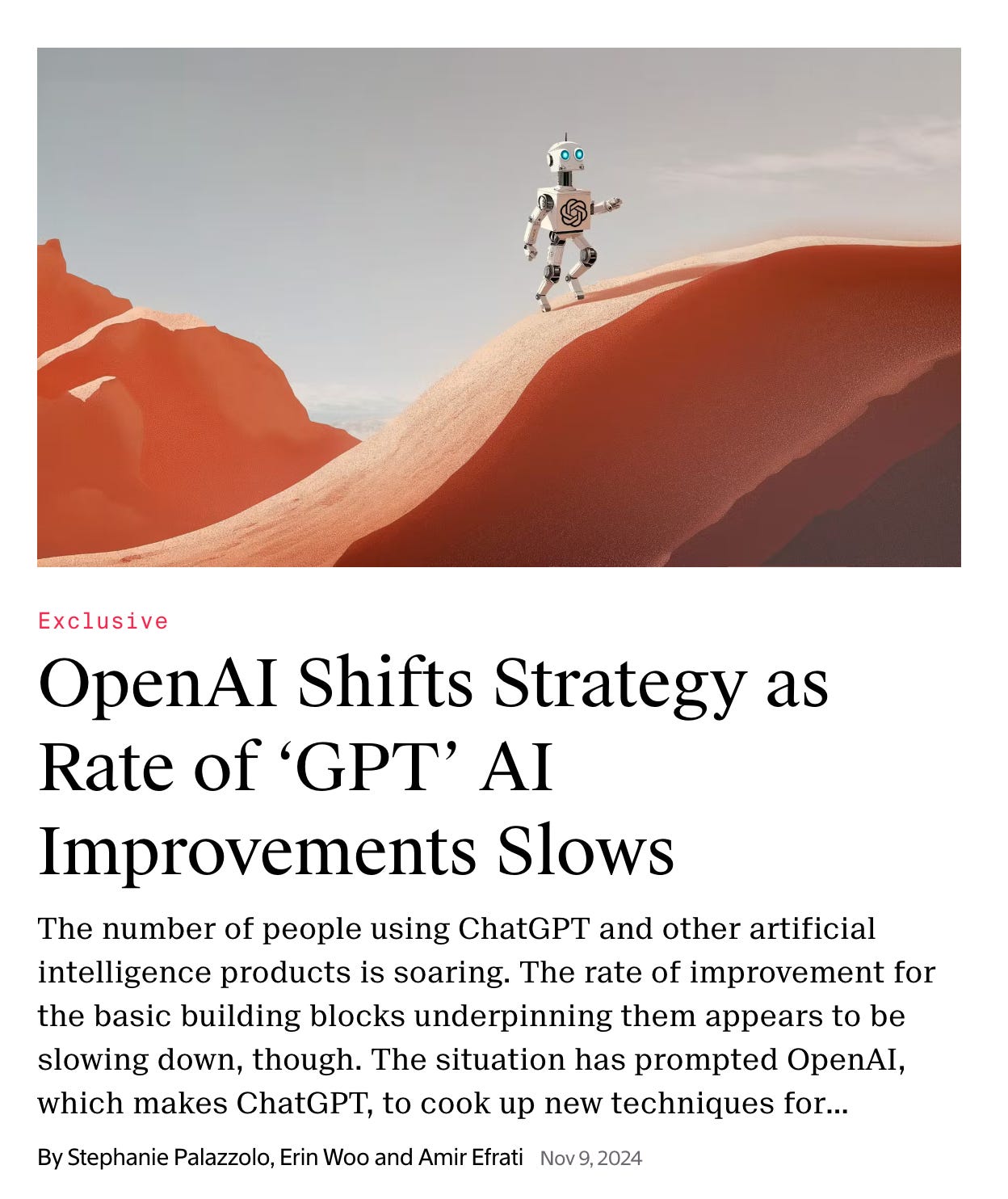Why OpenAI's latest stumble is actually good news for you
I'll show you how to stay ahead of these industry changes
The news about OpenAI's latest developments caught my attention this week, and I've noticed something fascinating that nobody's talking about - this AI "slowdown" might actually be the best thing that could happen for those of us using AI tools in our daily work.
While everyone's panicking about OpenAI hitting technical limitations, I'm seeing massive opportunities for smarter AI implementation.
Here's why this matters to you: the way you use AI tools is about to change, but not in the way most people think. If you get ahead of these changes now, you'll have a serious advantage in how you work with AI.
What's actually happening behind the scenes
Let me break this down in plain English: OpenAI's next big model (called Orion) isn't showing the dramatic improvements we saw between GPT-3 and GPT-4. They're basically running into a wall - not enough high-quality training data left to feed these hungry models.
But here's where it gets interesting: this isn't just an OpenAI problem. Google's dealing with the same issues with their Gemini 2.0, and even Anthropic has had to pivot their approach with Claude. The entire industry is hitting the same ceiling.
Now, you might think this sounds like bad news. But here's why I'm actually excited about this:





